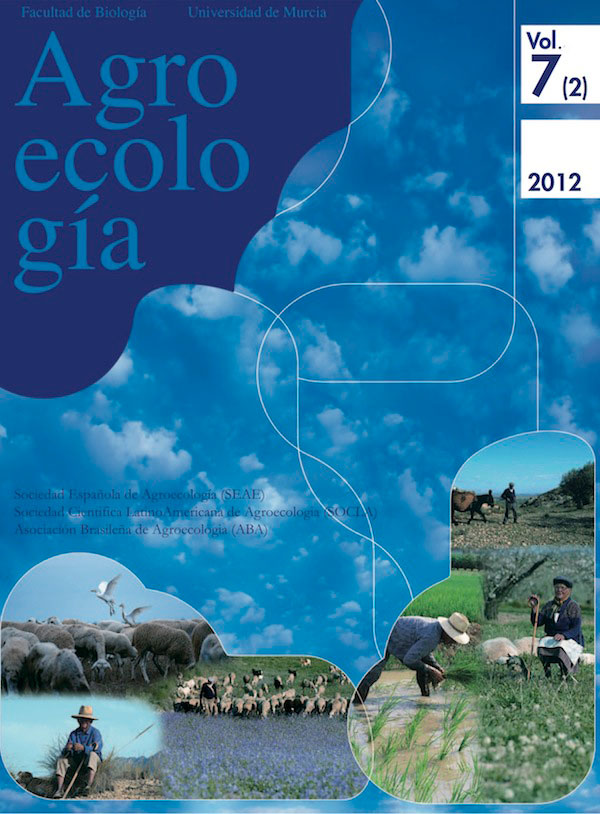The scaling up of agroecology: spreading the hope for food sovereignty and resilience
Abstract
The Green Revolution not only failed to ensure safe and abundant food production for all people, but it was launched under the assumptions that abundant water and cheap energy to fuel modern agriculture would always be available and that climate would be stable and not change. In some of the major grain production areas the rate of increase in cereal yields is declining as actual crop yields approach a ceiling for maximal yield potential. Due to lack of ecological regulation mechanisms, monocultures are heavily dependent on pesticides. In the past 50 years the use of pesticides has increased dramatically worldwide and now amounts to some 2.6 million tons of pesticides per year with an annual value in the global market of more than US$ 25 billion. Today there are about one billion hungry people in the planet, but hunger is caused by poverty and inequality, not scarcity due to lack of production. The world already produces enough food to feed nine to ten billion people, the population peak expected by 2050. There is no doubt that humanity needs an alternative agricultural development paradigm, one that encourages more ecologically, biodiverse, resilient, sustainable and socially just forms of agriculture. The basis for such new systems are the myriad of ecologically based agricultural styles developed by at least 75% of the 1.5 billion smallholders, family farmers and indigenous people on 350 million small farms which occupy les than 30% of the arable land but account for no less than 50% of the global agricultural output for domestic consumption.As an applied science, agroecology uses ecological concepts and principles for the design and management of sustainable agroecosystems where external inputs are replaced by natural processes such as natural soil fertility and biological control.
The global south has the agroecological potential to produce enough food on a global per capita basis to sustain the current human population, and potentially an even larger population, without increasing the agricultural land base, and using less energy and in a resilient manner in view of climate change.
Downloads
Las obras que se publican en esta revista están sujetas a los siguientes términos:
1. El Servicio de Publicaciones de la Universidad de Murcia (la editorial) conserva los derechos patrimoniales (copyright) de las obras publicadas, y favorece y permite la reutilización de las mismas bajo la licencia de uso indicada en el punto 2.
2. Las obras se publican en la edición electrónica de la revista bajo una licencia Creative Commons Reconocimiento-NoComercial-SinObraDerivada 3.0 España (texto legal). Se pueden copiar, usar, difundir, transmitir y exponer públicamente, siempre que: i) se cite la autoría y la fuente original de su publicación (revista, editorial y URL de la obra); ii) no se usen para fines comerciales; iii) se mencione la existencia y especificaciones de esta licencia de uso.
3. Condiciones de auto-archivo. Se permite y se anima a los autores a difundir electrónicamente las versiones pre-print (versión antes de ser evaluada) y/o post-print (versión evaluada y aceptada para su publicación) de sus obras antes de su publicación, ya que favorece su circulación y difusión más temprana y con ello un posible aumento en su citación y alcance entre la comunidad académica. Color RoMEO: verde.





